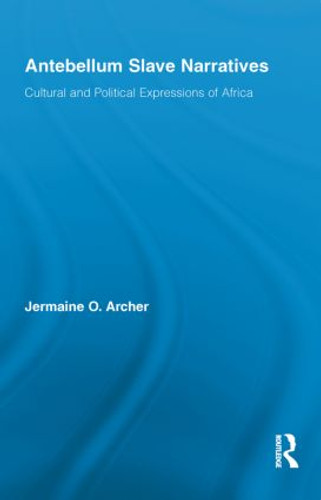Overview
Though America experienced an increase in a native-born population and an emerging African-American identity throughout the nineteenth century, African culture did not necessarily dissipate with each passing decade. Archer examines the slave narratives of four key members of the abolitionist movement—Frederick Douglass, William Wells Brown, Harriet Tubman and Harriet Jacobs—revealing how these highly visible proponents of the antislavery cause were able to creatively engage and at times overcome the cultural biases of their listening and reading audiences. When engaged in public sphere discourses, these individuals were not, as some scholars have suggested, inclined to accept unconditionally stereotypical constructions of their own identities. Rather they were quite skillful in negotiating between their affinity with antislavery Christianity and their own intimate involvement with slave circle dance and improvisational song, burial rites, conjuration, divination, folk medicinal practices, African dialects and African inspired festivals. The authors emerge as more complex figures than scholars have imagined. Their political views, though sometimes moderate, often reflected a strong desire to strike a fierce blow at the core of the slavocracy.
While major retailers like Amazon may carry Antebellum Slave Narratives (Cultural and Political Expressions of Africa), we specialize in bulk book sales and offer personalized service from our friendly, book-smart team based in Portland, Oregon. We’re proud to offer a Price Match Guarantee and a streamlined ordering experience from people who truly care.
We’re trusted by over 75,000 customers, many of whom return time and again. Want proof? Just check out our 25,000+ customer reviews—real feedback from people who love how we do business.
Prefer to talk to a real person? Our Book Specialists are here Monday–Friday, 8 a.m. to 5 p.m. PST and ready to help with your bulk order of Antebellum Slave Narratives (Cultural and Political Expressions of Africa).

